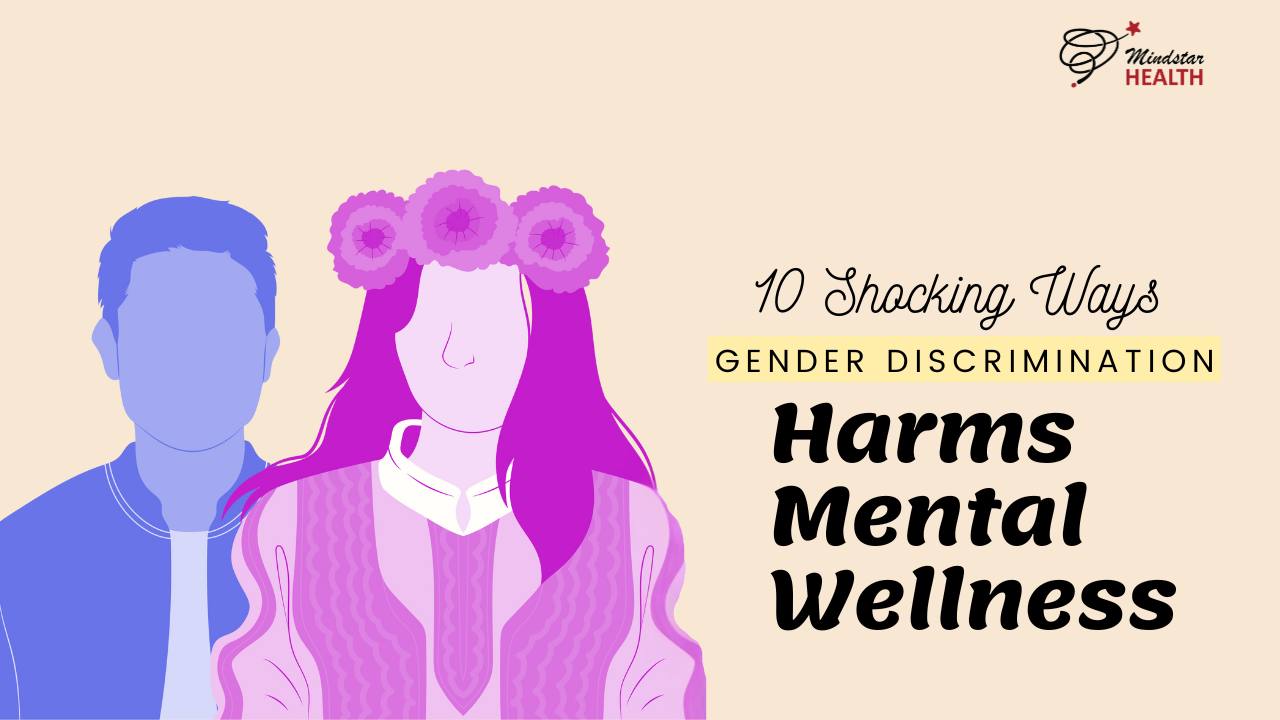Understanding Chronic Illness
Chronic illnesses are long-term health conditions that last for a minimum of twelve months, often requiring continuous medical attention and frequently restricting daily activities. These illnesses encompass a wide array of diseases, including cancer, heart disease, diabetes, lung disorders, asthma, HIV/AIDS, stroke, arthritis, multiple sclerosis, epilepsy, Crohn’s disease, chronic fatigue syndrome, fibromyalgia, and kidney disease, among others. Millions of adults are affected by at least one chronic illness, with many individuals living with multiple debilitating conditions. These persistent health challenges can significantly impact a person’s quality of life.
The Scope of Chronic Illnesses
Chronic illnesses are increasingly common. The CDC (Centers for Disease Control and Prevention) reports that six out of ten adults are living with a chronic disease, and four in ten have two or more chronic conditions. These illnesses are significant contributors to the staggering $3.8 trillion annual healthcare expenditure in the United States. In addition to their impact on physical health, chronic diseases can also have profound effects on mental well-being. They often lead to significant lifestyle changes, influencing how individuals manage their daily routines and activities, potentially exacerbating issues like depression.
Emotional Impact of Chronic Illnesses
Living with a long-term illness often demands significant adjustments to daily life, which can be both challenging and stressful. This may involve adopting new diets, exercise routines, medication schedules, and other lifestyle changes. In addition, limitations on social activities due to the illness, such as those related to work, travel, and other personal commitments, can contribute to emotional burdens. These factors can lead to feelings of stress, anxiety, anger, and even depression, making it crucial to seek support and effective coping strategies.
Grief and Emotional Responses
Upon receiving a diagnosis of chronic illness, it is common to experience feelings of grief over a lost lifestyle and uncertainty about the future. Along with these emotions, many people also face mood swings, distress, and frustration, especially when they realize that their choices and prospects are now dependent on how their body feels. Additionally, research consistently shows that patients who confront their diagnosis, seek help, and do not hide from their condition tend to have greater satisfaction with their lives and are better able to adjust.
Acceptance And Empowerment
Facing the Diagnosis
When individuals confront their diagnosis directly, particularly those dealing with chronic illness or depression, they tend to experience greater life satisfaction. By acknowledging their condition, understanding its impact, and taking proactive steps to manage it, they can feel more empowered. Actively seeking information and support, especially from medical professionals, can help reduce anxiety and increase a sense of control over their health and well-being.
Read more about Life Satisfaction here
Seeking Information
It is important to gain a thorough understanding of chronic illness, including how to manage it and the potential complications that may arise. Reliable information can be found through healthcare providers, reputable medical websites, and patient support groups. When patients are well-informed, they are empowered to take a proactive role in making decisions regarding treatment options and lifestyle changes.
Read more about Chronic Pain here
Coping Strategies
Lifestyle Adjustments
Living with a chronic illness often requires significant changes in daily routines or behavioral patterns. Although these adjustments can be challenging, they are essential for managing the condition and improving overall quality of life.
Prioritizing Time
One important change is reducing commitments outside the home and spending more time with family members, which can create a more relaxed, stress-free environment. These activities help individuals maintain a positive outlook on life, even while dealing with ongoing health challenges. Striking a balance between rest and activity and setting realistic goals are key to managing time effectively.
Setting Small Goals
Another helpful strategy is focusing on achieving small, positive goals each day. Accomplishing even minor tasks, such as having a phone conversation with a friend, taking a short walk in the park, or engaging in a favorite hobby, can significantly improve mood. These small victories contribute to healthier living and increased happiness, fostering a sense of well-being despite the challenges of chronic illness or depression.
Staying Positive
Living in the Present Moment
When dealing with a chronic illness, it is often more helpful to focus on the present rather than worry about the future. This approach can foster a more positive mindset. Techniques like mindfulness, meditation, and deep breathing exercises help increase awareness of the present moment while reducing anxiety.
Avoiding Overthinking
Ruminating on negative aspects of the condition can worsen stress and depression. These harmful thought patterns can be broken by engaging in physical activities or creative pursuits, which divert attention from the illness and promote better mental well-being.
Embracing Treatment
Taking an active role in managing one’s health, such as following prescribed treatment plans, attending regular medical check-ups, and staying informed about new therapies, enhances a sense of control and optimism. Collaboration with healthcare providers is essential for effective management of the condition.
Long Term Management
Appreciation/Expression of Emotions
Mental health thrives on the honesty of expressing emotions. Feelings such as sadness, anger, and frustration are normal reactions to various experiences. Embracing these emotions and seeking support when necessary can help prevent emotional burnout and contribute to better overall well-being.
Reaching Out for Help
Reaching out to caring friends, family members, or other supportive networks can greatly benefit those dealing with chronic illness or emotional struggles. This support can help with both emotional challenges and practical difficulties. Sharing experiences with others who understand the impact of living with chronic illness can alleviate feelings of loneliness and enhance coping mechanisms.
Discovering Goodness in Everything
For individuals facing ongoing challenges, learning to find something positive even in difficult situations can be a powerful way to build resilience. Developing positive thinking patterns through professional methods, such as counseling, can help create healthy coping strategies. These approaches are crucial in fostering emotional well-being and managing depression or other mental health concerns.
Systems Of Support
Family and Friends
Open Communication
Clear communication with family members is essential to receive emotional and practical support. While some loved ones may be eager to help, they may not know how to offer assistance. For instance, when a person with chronic illness, depression, or other needs requires help with tasks like transportation, shopping, or childcare, expressing these needs openly can ensure that support is provided.
Understanding the Illness
It is important that loved ones do not make assumptions about the condition but instead take the time to educate themselves about the illness. Every person’s experience with chronic illness or depression is unique, so understanding these differences can help avoid misunderstandings and promote better support (Wysocki et al., 2009).
Support Groups
Finding Community
Support groups offer a valuable sense of belonging and understanding. Many chronic illnesses have dedicated self-help groups that meet either in person or virtually. These groups provide an opportunity to connect with others facing similar challenges, including those who may experience emotions and struggles similar to your own. Engaging in these communities can be a powerful way to share experiences, gain insights, and find comfort in knowing that you are not alone.
Professional Assistance
Counseling
The counselor helps individuals with chronic illness cope with the emotional challenges arising from their condition. Therapists offer psychological support, guiding those affected to develop strategies for managing negative thought patterns and building resilience (Tedeschi & Calhoun, 2004). This therapeutic approach may include cognitive-behavioral therapy (CBT) or other suitable forms of intervention.
Chronic Illness And Depression
Depression, for example, is more likely to develop when chronic illnesses are present, and certain medications used to treat chronic conditions can increase the risk of depression (Griffiths et al., 2011). However, depression should not be seen as an unavoidable outcome; it requires active treatment, as many people tend to overlook this need. Furthermore, research has shown that depression can increase the likelihood of developing other health conditions, such as heart disease, diabetes, and Alzheimer’s disease.
Dealing With Depression
Symptoms Identification
It is crucial to identify the signs of depression, such as persistent sadness, loss of interest in previously enjoyed activities, changes in appetite or sleep patterns, and feelings of hopelessness. Early recognition and treatment of depression can significantly improve quality of life and prevent the condition from worsening.
Seeking Help
Treating depression often requires a combination of psychotherapy, medication, lifestyle changes, and support groups. A holistic approach that addresses both the emotional and physical aspects of chronic illness will promote overall wellbeing. It is vital to work closely with healthcare professionals to create an individualized treatment plan that best suits the person’s needs.
The Struggles of Living with Chronic Illnesses
Unpredictability
A key challenge of chronic illness is the inability to predict symptoms and outcomes. The unpredictable nature of these conditions can be overwhelming. To navigate this uncertainty effectively, it is crucial to have access to reliable information and expert guidance.
Managing Uncertainty
Reliable Information
Relying on dependable information from healthcare professionals and trusted sources is crucial in managing uncertainty. Staying informed about the nature of a condition, available treatments, and potential complications can help alleviate anxiety, supporting better decision-making.
Managing Uncertainty
Embracing the unpredictable aspects of chronic illness can significantly aid in coping. Developing flexibility and resilience, while focusing on what can be controlled, can contribute to improved psychological well-being. Additionally, engaging in calming activities or stress-reducing practices can offer further relief.
Rare Conditions
For individuals diagnosed with less common conditions, the challenges are often greater. These can include difficulties in obtaining a precise diagnosis and locating specialized healthcare providers. Online support groups provide valuable resources for people with rare diseases, while advocacy efforts play a vital role in raising awareness and securing funding for research.
Taking Action And Support
Striving for a Diagnosis of a Rare Condition
For patients dealing with rare conditions, obtaining an accurate diagnosis can often be a lengthy and complex process, sometimes taking years or even decades. This is why advocacy plays a crucial role in helping individuals navigate the healthcare system and secure the appropriate care for themselves or their loved ones.
Finding Support
Online networks have become a valuable resource for individuals facing chronic illness or rare conditions. These platforms allow people to connect, share their experiences, and offer empathy to others dealing with similar challenges. Virtual communities can provide emotional support, particularly for those experiencing conditions such as rare disorders or depression. Additionally, regional or national conferences offer excellent opportunities for individuals to connect with others and access further resources for managing their conditions.
Helping Someone with Chronic Disease
Practical Assistance
Provide Support
Offering practical help, such as transportation to medical appointments, assistance with shopping, or childcare, can be extremely valuable. When you assist someone in a specific area, it fosters a greater willingness in the person to accept help in other areas as well.
Respect Confidentiality
Protect Privacy
Respecting the privacy and boundaries of an individual is essential. If someone wishes to keep their chronic illness, depression, or any other condition confidential, it is important to honor their request.
Emotional Aid
Be a Good Listener
Sometimes, simply listening can be the most supportive thing you can do. Providing a safe, nonjudgmental space where individuals can express their feelings and thoughts can offer significant emotional relief.
Avoid Misunderstandings
Understand the Person
It’s important to remember that a person’s appearance doesn’t always reflect how they feel. Stress can exacerbate symptoms of chronic illness or depression without necessarily indicating a deeper psychological issue. Therefore, it’s crucial to avoid making assumptions about someone’s experiences based on outward signs.
Chronic Illness And Personal Relationships
Maintaining Contacts
Shared Misery Experience
Couples who view chronic illness as a shared burden and engage in open communication often experience lasting and thriving relationships. It’s essential to recognize the significant changes that affect both partners while maintaining transparent dialogue about fears and concerns. Addressing these challenges together creates a stronger bond and mutual understanding.
Changeability
Adapting to new circumstances and finding innovative solutions to problems is key to sustaining deep relationships. Resilient partnerships thrive on mutual understanding and flexibility, with both individuals willing to grow and change alongside one another. This adaptability helps couples face various challenges, including those brought on by chronic illness or depression, while maintaining a supportive and loving connection.
Sexual Health And Wellness
Closeness With The Partner – Emotional Intimate Relationship
Individuals diagnosed with chronic illnesses often experience feelings of insecurity and self-doubt regarding their sexual lives, leading them to feel “broken.” Many clinicians believe that, for most patients, the benefits of sex outweigh any potential disadvantages or limitations related to their health conditions. As a result, they typically encourage sexual activity. Even when physical limitations exist, intimacy can still be preserved by shifting the focus away from performance-based, penetrative sex, towards pleasure-centered activities.
Exploring opportunities
There are various sexual activities that can foster both pleasure and intimacy between partners. For a fulfilling sex life, it is crucial to communicate openly about desires, boundaries, and preferences.
Frequently Asked Questions
How can I manage the emotional impact of chronic illness?
Managing the emotional impact involves seeking support from loved ones, joining support groups, and engaging in professional counseling. Practicing mindfulness and setting small, achievable goals can also help maintain a positive outlook.
What lifestyle changes are necessary for managing chronic illness?
Lifestyle changes may include adopting a balanced diet, regular exercise, adhering to medication schedules, and prioritizing rest. It’s also important to reduce stress by managing time effectively and focusing on enjoyable activities.
How can family and friends best support someone with a chronic illness?
Family and friends can offer practical help, such as transportation or shopping, and provide emotional support by listening without judgment. Educating themselves about the illness and respecting the individual’s privacy are also crucial.





















